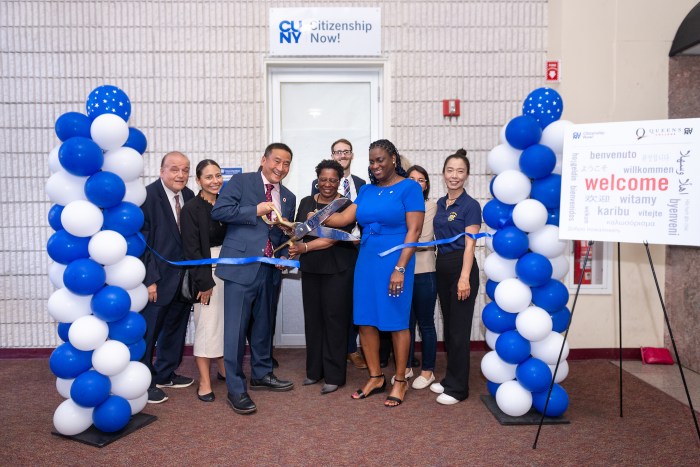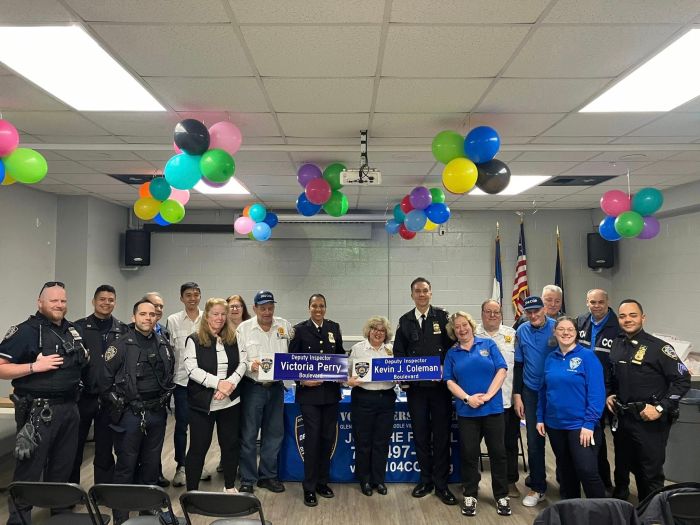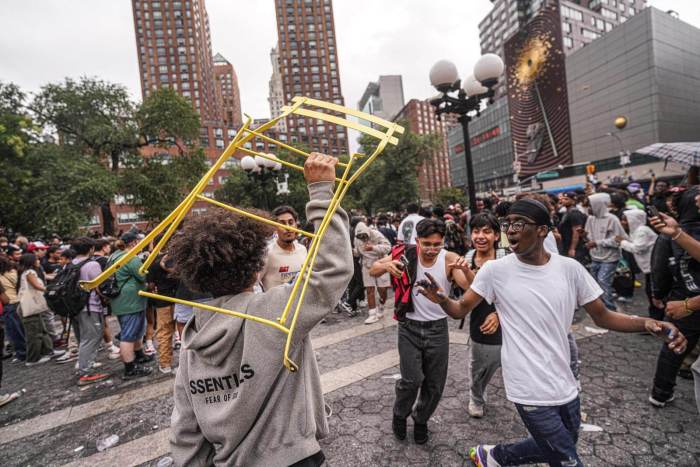By Betsy Scheinbart
Queens Borough President Claire Shulman said Gov. George Pataki favors diverting some flights from overburdened LaGuardia Airport to Kennedy Airport, which Shulman said she would support in exchange for his backing a one-seat AirTrain ride to Manhattan.
Shulman, in a session with the TimesLedger last week, said her office has set aside $650 million in Metropolitan Transportation Authority money to pay for a one-seat AirTrain.
“I do have the money for a one-seat ride,” Shulman said, adding that former MTA Chairman Virgil Conway “put that money in the budget when he was running the MTA. I presume the money is still there.”
Shulman described a meeting in Washington late last year with Transportation Secretary Rodney Slater, who suggested that some flights at heavily congested LaGuardia could be diverted to Kennedy to relieve the burden on the northern Queens airport.
“I said, “Give me a one-seat ride from Manhattan to Kennedy and we'll do it.’ Well, like he never really heard of that,” Shulman said.
“The interesting thing and something you might want to look into is that the governor just said ‘we know you can do a flyover (diverting LaGuardia flights to JFK) and make a one-seat ride from Manhattan to Kennedy,’” the borough president said.
“The governor said he wants to do that,” Shulman said of the LaGuardia-to JFK flight diversions proposal. “It’s a smart thing to do because it could alleviate a lot of the air traffic.”
Shulman said original plans called for AirTrain cars to be capable of running on Long Island Rail Road tracks. The AirTrain, now under construction in southeast Queens, will run back and forth to JFK from Jamaica Station, where passengers will have to switch to the LIRR to complete the Manhattan segment of the trip.
“Then we discover that the cars they bought for the AirTrain are not compatible — it is not that they wouldn’t fit on the (LIRR) tracks but the cars are too lightweight.
“But they were supposed to be. I mean, that was the whole idea.”
Tony Cracciolo, Port Authority Capital Projects manager, said the AirTrain cars, the first of which have arrived, are not heavy enough to meet federal crash test requirements. Cracciolo said since the AirTrain was designed to run automatically by remote control, as do most light rail systems at U.S. airports, there is no cab for a train operator.
AirTrain is scheduled to start service in 2003.
Shulman acknowledged other city transportation projects are demanding money.
She mentioned, for instance, that state Assembly Speaker Sheldon Silver (D-Manhattan) is pushing a Second Avenue subway and U.S. Rep. Gregory Meeks (D-St.Albans), among others, want to bring the Long Island Rail Road into Grand Central Terminal.
“The amount of money is limited and it depends on what your priorities are,” Shulman said. “But if the governor says ‘let’s do the fly-over’ (sending some LaGuardia flights to Kennedy), then that makes it the priority for transportation money.”
The idea of a rapid transit link from Manhattan to Kennedy Airport has been discussed for decades and construction of the JFK-to-Jamaica portion began only recently — long after such rail systems at other major U.S. airports, including Atlanta, Seattle, Houston, Dallas-Fort Worth, Tampa and San Francisco had been running for years.
As for LaGuardia, it accounted for nearly a quarter of all delays in the United States last year and in September 2000 handled nearly 1,600 flights in a 24-hour period. Many passengers spent more time waiting for takeoff than in the flights to their destinations.
The aviation traffic jams at LaGuardia worsened rapidly about a year ago after Congress passed legislation called the Wendell R. Ford Aviation Investment Act for the 21st Century, more popularly known as Air-21. Within weeks several airlines collectively added a total of 608 news flights at LaGuardia.
The legislation permits unlimited flights by what the new law termed regional jets carrying no more than 70 passengers to underserved airports, where lack of competition had long resulted in fares that many travelers said were exorbitantly priced.
Delays at LaGuardia reached the point that the Port Authority imposed a moratorium on new flights in September. The Federal Aviation Administration in December 2000 conducted a lottery for arrival and departure slots among airlines, which further cut back on flights at the beleaguered LaGuardia.
The lottery is scheduled to end in September at which time a more permanent solution is expected to be found. If not, U.S. Reps. Joseph Crowley (D-Jackson Heights) and Carolyn McCarthy (D-Mineola) have introduced legislation to extend the lottery.
“There has to be some reasonable schedule for jets coming in and out of LaGuardia,” Shulman said. “LaGuardia is extremely important to the business interests of the city.”
Reach Betsy Scheinbart by e-mail at Timesledgr@aol.com or call 229-0300, Ext. 138.
































